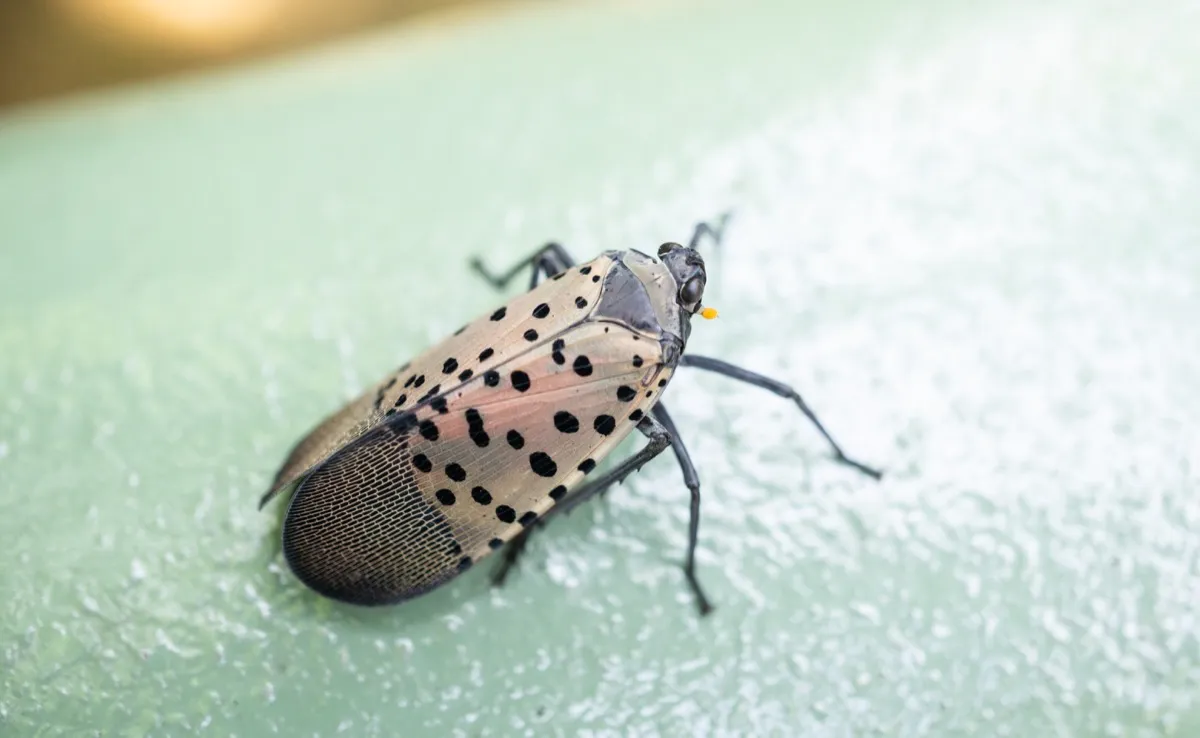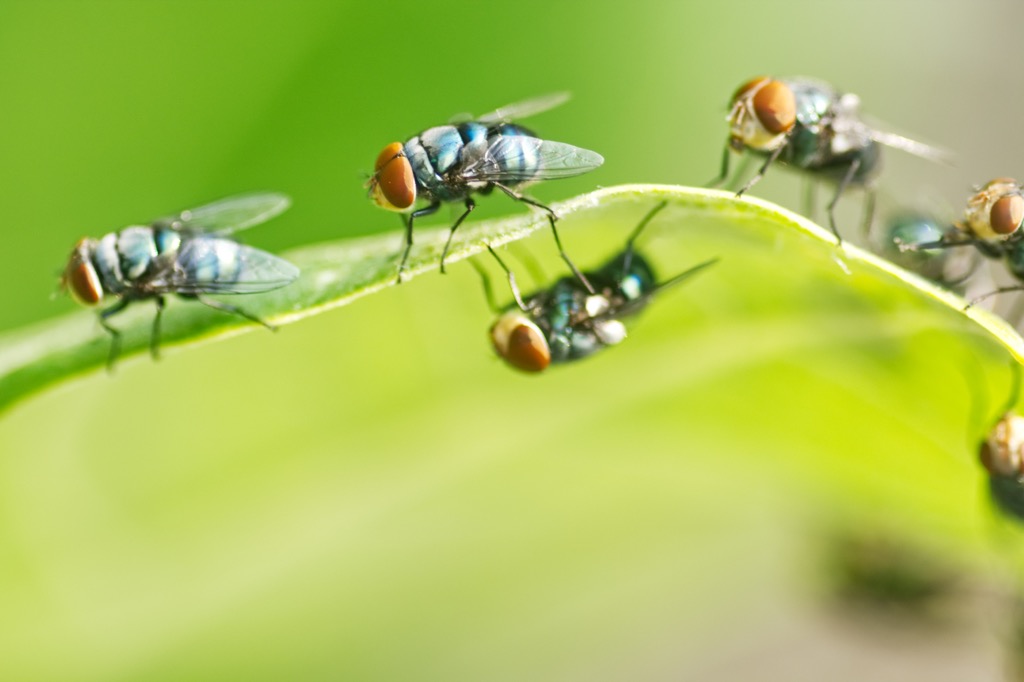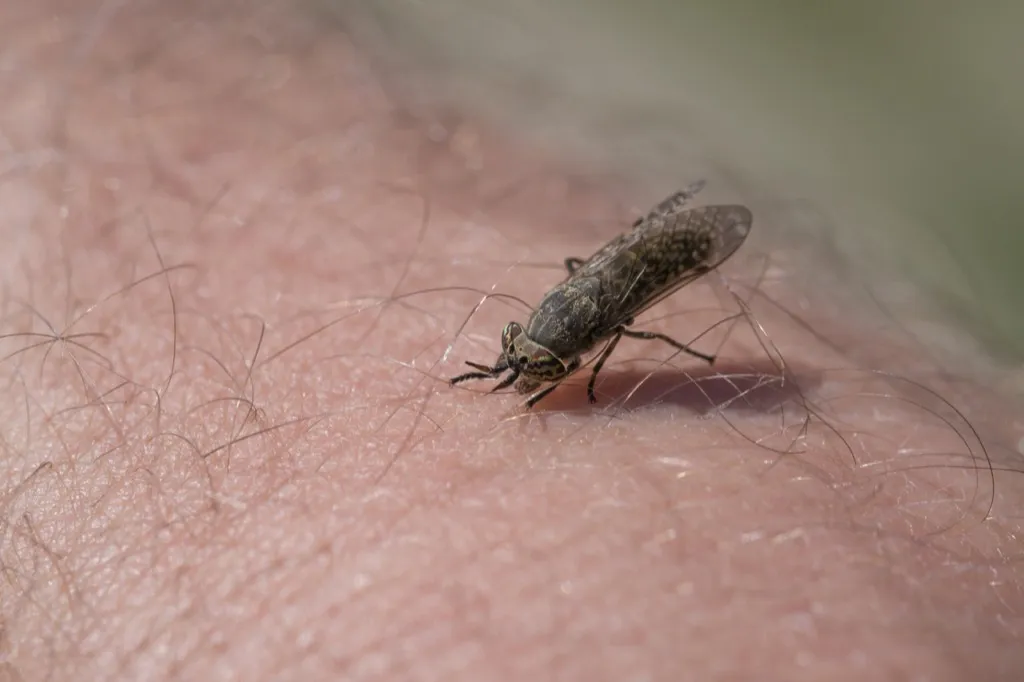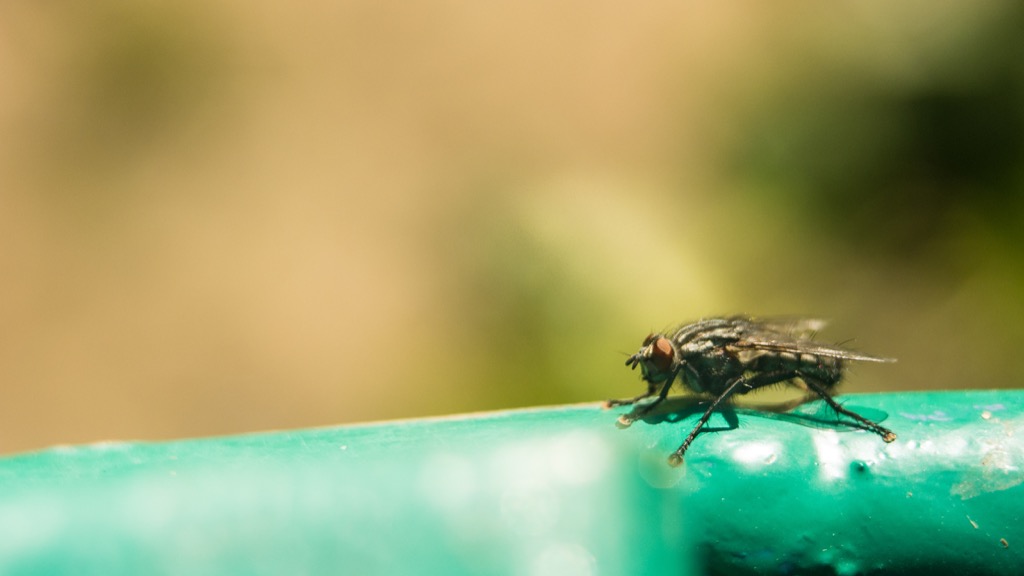This Is What It Means When a Fly Lands on You
We’ve all experienced the annoyance of a fly that just won’t leave you alone, no matter how many times you try to shoo it away—Vice President Mike Pence certainly did at the vice presidential debate on Wednesday, Oct. 7. But have you ever thought about the motivation behind the fly’s dogged persistence? Why would it expend so much energy or so willingly risk a fatal swatting just to land on your arm for a spell when there are an endless amount of other places they could do so with no immediate danger in sight? They have to be getting something out of it—and in fact, they are. We talked to entomologists to find out what happens when a fly lands on you and why they choose to land on certain people. And for more bits of bug trivia, check out The Most Painful Sting You Can Get From an Insect.
1
Flies are scavengers and you’re a food source.

When a fly lands on something, it’s almost always because it believes it to be a food source. And that’s certainly the case when it comes to why they land on humans, says Nancy Troyano, PhD, a board certified entomologist and director of operations education and training for Ehrlich Pest Control.
“They have a good sense of smell and will investigate odors that could be a potential food source,” Troyano says. “Humans give off [carbon dioxide] and warmth, both of which may indicate a potential food source to a fly. Humans also emit body odors that are attractive to flies.” And for more interesting insect info, This Deadly Pest Could Be Hiding in Your Bedroom, Experts Say.
2
They absorb the moisture from your skin.

The attraction Troyano refers to can be sparked for a few reasons. “The initial attraction can be as simple as something we ate or drank that as we perspire, the odor, however faint to us, becomes a strong attractant to a fly’s sensitive sense of smell,” says Mike Duncan, an associate certified entomologist and national technical manager at Truly Nolen Pest Control.
Flies can’t digest solid materials, so when they land on you, “they are ‘sopping’ up the moisture from the skin,” Duncan says. “This process is done with their sponging mouthparts. That is why, if you watch, they are constantly dapping the skin to gather as much moisture as possible.”
3
And they ingest your dead skin cells.

Another reason you might find a fly on your skin is due to the dead skin cells you are constantly shedding from your body. “They will use the moisture collecting to ‘regurgitate’ on the medium they are landing on to be able to ingest the liquified medium for nutrition,” Duncan says. And for more on some extra pesky pests, check out If You See This Bug, You May Have to Quarantine.
4
So, they may leave some gross stuff on you.

Aside from what they get from landing on your skin, flies often leave you with a little something after they move on. “The biggest concern a person should have is that when a fly lands on [you], it was probably on something decaying before,” Tommy Olschewske, a technical training manager at Arrow Exterminators told House Beautiful. Yikes. This can include fecal particles and other less-than-sanitary substances. And for more helpful information delivered straight to your inbox, sign up for our daily newsletter.
